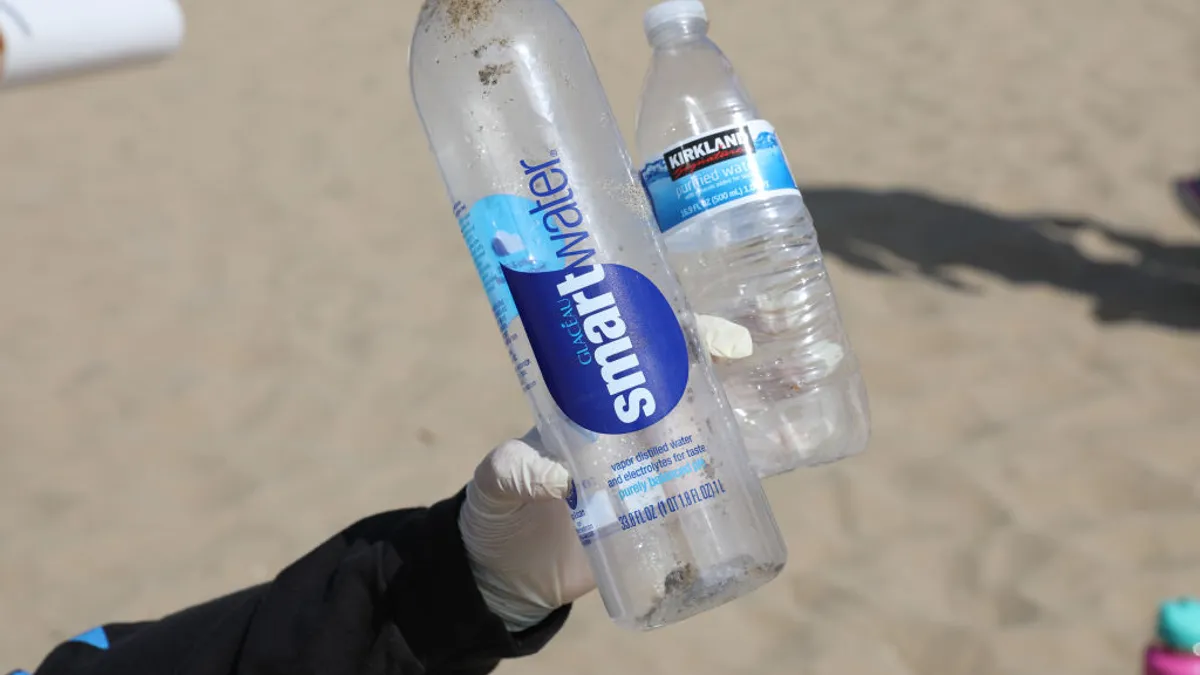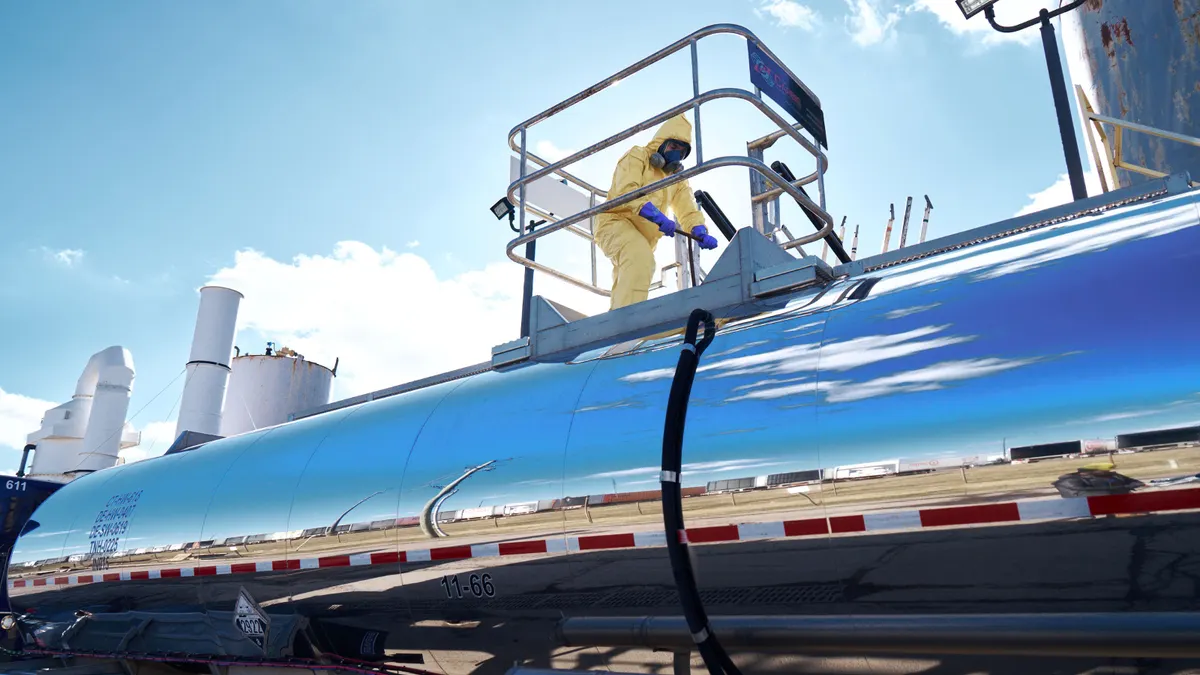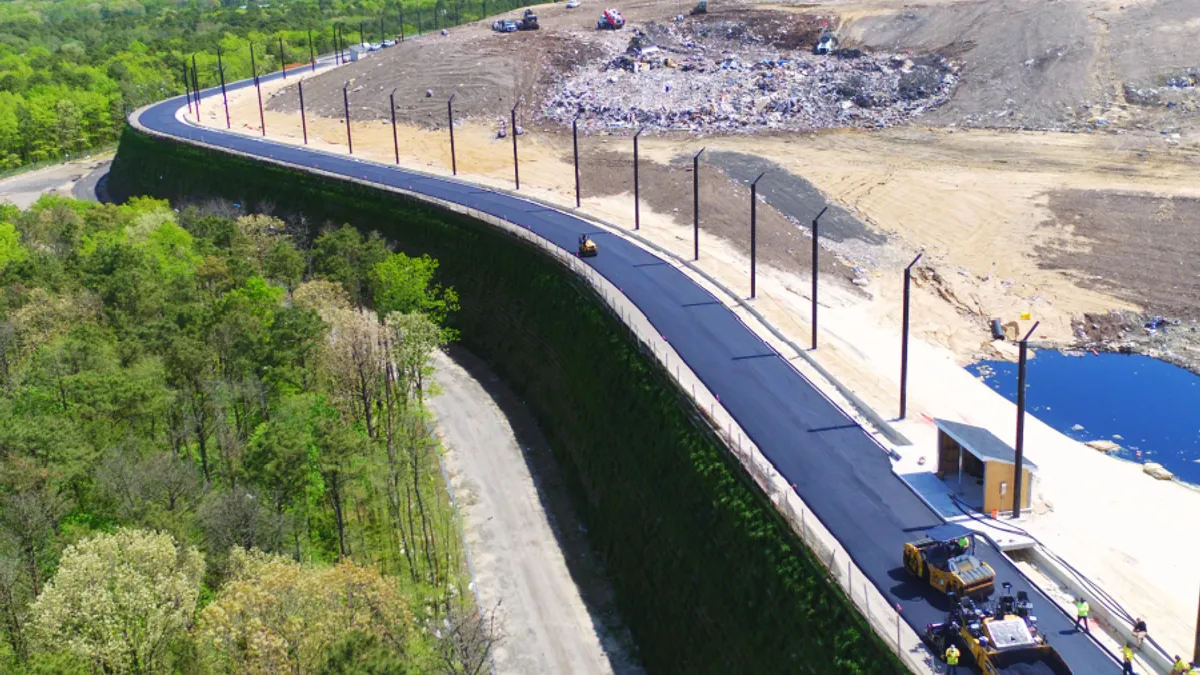CORRECTION: In a previous version of this article, an incorrect statistic was given for the amount of glass from single-stream.
Mid America Recycling president/owner Mick Barry and co-owner Brian Meng are using decades of combined experience to capitalize on a struggling recycling industry. They aim to show competitors how to thrive in an era when low commodities prices, decreased foreign demand for recyclables, and a strong U.S. dollar have driven others out of recycling.
In April 2014, the partners re-started their old brand Mid America Recycling by buying Midland Recycling in Lincoln, Nebraska. That facility once was owned by Mid America Recycling, a firm the two started in 1989 along with another partner, the late Porter Williams, and continued to run until selling it in 2007.
In June, Waste Management sold the largest recycling center in Des Moines, IA, to its former owner, Mid America Recycling. With the purchase, Mid America Recycling took the brand back to its roots. The local recycling management company was bought in 2007 by Greenstar Recycling, which in 2013 sold it to Waste Management.
Part of Mid America Recycling’s business strategy revolves around vesting key personnel in the business. In addition to Meng and Barry, the general managers of each of the company’s two plants also have ownership stakes in the company.
Born and raised in Chicago, Barry, 65, began his career as a forester. That early education in working with a virgin material continues to inform his professional life. Viewing recycled material as raw materials is central to his perspective to the business. Waste Dive spoke with Barry recently to get his take on his newly revived brand, and on the industry in general.
WD: Why are you getting back into the recycling business? Isn’t it a tough time in the industry to do so?
Barry: I’m getting back in with both feet for a couple of reasons… The city of Des Moines had been asking us to consider buying the firm. Having the hometown get back into the game gave us more incentive. The company has two major contracts: the city of Des Moines, and the Metro Waste Authority, which serves Des Moines’ suburbs… And I also got back into the business because I saw Des Moines potentially suffering because of the lack of focus.
WD: What do you enjoy about your job?
Barry: Recycling is in your blood, forever. We knew how to make things work and we knew how to do it economically… We felt recycling in Des Moines could be hurt if things trended there as they have nationally.
WD: How is recycling challenged these days?
Barry: There’s a lot of diapers in our single-stream today. And plastic bags gum up the works… The citizens all try to do the right thing, but having a professional firm that understands recycling is important. If you make quality raw material [from recyclables], you will have a market for your materials. You have to learn to work in the market conditions that are presented to you, by making quality raw material.
WD: What did you notice when you re-launched your firm and bought the first plant?
Barry: When we took over the plant we saw a lot of plastic going into paper bales. But it’s hard for the paper mill to make paper out of plastic. You don’t sell something like plastic for less than what it’s worth, which is what happens when it goes into paper bales.
WD: How do you feel about single-stream recycling, which seems to be trending up in cities across the country?
Barry: I’ve never been a fan of single-stream—because I can’t get the omelette back into the egg… Grocery stores have to take responsibility to take plastic bags back, in a completely separate, segregated stream. Our single-stream works better in Des Moines because of deposit laws.
WD: Will things get tougher for the recycling industry before they get better?
Barry: I think they will remain tough for another year. Some of the grades of fiber are going up.
WD: These days local governments are cutting back on recycling due to costs, and manufacturers are only refunding e-waste collections as far as they must. Recycling centers are refusing some types of waste to avoid losing money on them, so how optimistic are you that new markets will be created that are sustainable and which need recyclables?
Barry: It’s all about understanding the mill’s need, in order to make a profit. We are making a bale of raw material fiber—good clean raw material recovered paper. Quality raw materials is paramount. We are competing against pulp, to replace it.
WD: You’re clearly optimistic, but what developments do you see in the future for the industry?
Barry: The prices are so low because the quality is so low… Single-stream operations must get back to understanding the basic premise of recycling—we are raw material providers. It’s a different frame of mind at the end of the baler.
WD: Where do you see future growth in the industry?
Barry: I’ve got to sell my high-quality product, and the future is in providing quality product... Larger companies are too reactive to the stock market. When they’re dumping crummy materials into the marketplace, it allows me to raise my prices… But how do we make quality energy out of items we can’t use in recycling?
WD: Do you like waste-to-energy technology?
Barry: I’m not a WTE fan because I don’t feel very comfortable with incineration. I am a fan of gasification.
WD: What do you think about plastic bags?
Barry: I think plastic bags are the scourge of any mechanized recycling system. They just get into everything. If the retailers feel they need that cost savings for the customer [that is achieved through using single-use plastic bags], then they should have the customers bring the bags back to them. Wal-Mart does a great job with that, so does Hy-Vee grocery stores… Grocery stores don’t want to make a big deal of it, because it’s more of a pain for them. Most major retail outlets don’t want to deal with it, but they’re selling part of the problem with recycling in the U.S., and they need to be more helpful in separating that recyclable.
WD: How about food waste composting?
Barry: I think it’s needed, and has to happen. And guess what? Gasification loves food. You can make energy out of a banana peel.
WD: Many recyclers and others have criticized glass as essentially a valueless recyclable that cost money. What do you think?
Barry: We do 4,000 tons of glass in Des Moines a month. And 90% of it is from the deposit stream —we’re making money on deposit glass. We do not believe in [using glass as] alternative daily cover at landfills.

















